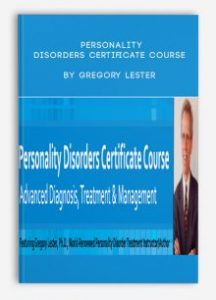 Personality Disorders Certificate Course by Gregory Lester
Personality Disorders Certificate Course by Gregory Lester
More information about Medical:
Medicine is the science and practice of establishing the diagnosis, prognosis, treatment, and prevention of disease.
Medicine encompasses a variety of health care practices evolved to maintain and restore health by the prevention and treatment of illness.
Contemporary medicine applies biomedical sciences, biomedical research, genetics, and medical technology to diagnose, treat, and prevent injury and disease,
typically through pharmaceuticals or surgery, but also through therapies as diverse as psychotherapy, external splints and traction, medical devices, biologics, and ionizing radiation, amongst others.
Medicine has been around for thousands of years, during most of which it was an art (an area of skill and knowledge) frequently having connections to the religious and
philosophical beliefs of local culture. For example, a medicine man would apply herbs and say prayers for healing, or an ancient philosopher and physician would apply bloodletting according to the theories of humorism.
In recent centuries, since the advent of modern science, most medicine has become a combination of art and science (both basic and applied, under the umbrella of medical science).
While stitching technique for sutures is an art learned through practice, the knowledge of what happens at the cellular and molecular level in the tissues being stitched arises through science.
Outline:
The most difficult population in mental health… clients with personality disorders.
- The manipulative and possibly violent clients with Antisocial Personality Disorder
- Clients with Borderline Personality Disorder who are out of control, have explosive emotions, self-harm tendencies, and cravings for chaos
- The perfectionist clients with Narcissistic Personality Disorder who are quick to blame and combative to overpower you in session
- Clients with Histrionic Personality Disorders whose intense emotions and need for attention test your patience and compassion
Traditional psychotherapies and medications don’t effectively treat these clients, so their resistance to treatment can leave you feeling frustrated, trapped, and even wishing you’d picked a different profession all together!
But I have good news — after 50 years of intensive global research, we now have proven, empirically validated models to effectively treat personality disorders.
Now, in this online certificate course, I’ll provide you with a transformative, step-by-step plan that will empower you to accurately diagnose and successfully treat all 10 personality disorders. You’ll learn exactly what to say and what to do when treating the disorders, structured in a simple, uncomplicated manner that you can quickly master and automatically resource whenever you’re working with your clients.
End this course with your Certificate in Personality Disorder Treatment & Management, and the complete framework for integrating advanced personality disorder treatment strategies in your very next session.
I’ve trained more professionals on personality disorders than anyone in history, and I promise you, after this training you will never again be unsure of what to do with this client population. This is a must-have training for all clinicians!
Become an expert at working with personality disorders, help your clients build happier relationships, and live more fulfilling lives!
Join world-renowned personality disorder treatment expert, Dr. Gregory Lester for this practical and comprehensive online certificate training and get a session-by-session guide for effectively diagnosing, managing, and treating personality disorders.
Using real-life case examples and easy-to-follow training sessions, you’ll not only learn the neurobiological, genetic, and developmental roots of personality disorders — you’ll discover how to successfully rewire a person’s sense of self so they can function more effectively and build better social connections.
Here’s what you’ll learn to do in this certificate training…
In Module One, you’ll gain a foundational understanding of personality disorders — including the 10 types of personality disorders, the common behaviors associated with each disorder, and the underlying structure that make them different than all other areas of therapy. In this module, you’ll learn…
- The Distinction “Personality Disorder”
- Why traditional models of mental health don’t fit
- What makes a personality disorder a chronic condition
- Why personality disordered people think “it’s everybody else”
- Why “normal” talking with personality disordered people is ineffective
- The Effects of a Personality Disorder
- How personality disordered people create difficulties for themselves and others
- The difference in life pattern between “normal” and “disordered” personality
- How to predict the behavior of individuals with personality disorders
- The type of chaos created by Cluster A, B, and C personalities
In Module 2, you’ll begin the step-by-step process of effective diagnosis and treatment of personality disorders. Dr. Lester will guide you to an in-depth understanding of the causes of personality disorders and teach you how to set effective treatment strategies and goals. In this session, you’ll explore…
- Assessment and Diagnosis of Personality Disorder
- Why diagnosis is EVERYTHING in treatment of personality disorders
- 5 steps to identify and diagnose a personality disorder
- Why the Etiology of Personality Disorders Matters in Treatment
- The single biggest mistake clinicians make regarding etiology
- Treating vs. Managing Personality Disorders
- Predicting “treatability” of a personality disordered client
- How to choose an intervention approach
- The structure that makes all interventions effective
- Developing effective treatment goals for Cluster A, B, and C personalities
This module will lay the foundation for an effective and appropriate treatment plan by reviewing the benefits and risks from a variety of empirically validated approaches used to treat personality disorders. You’ll learn to identify the treatability level of your clients so you can properly match your intervention technique with their therapeutic goals. In this session, you’ll explore…
- Optimal functioning methods
- Mentalization-Based Treatment
- Transference-Focused Psychotherapy
- Interpersonal Reconstructive Psychotherapy
- Object Relations Developmental Psychotherapy
- Adequate functioning methods
- Dialectical Behavior Therapy
- Schema-Based Treatment
- Personality-Guided Psychotherapy
- Targeted behavior improvement methods
- Tactical Therapy
- Strategic Therapy
- Structural Therapy
- Limitations and risks of the psychotherapeutic approaches
In this module, Dr. Lester will guide you through the step-by-step plans for effectively treating and managing personality disorders — including the three must-have interventions that all therapists need for working with this population. In this session, you’ll get access to…
- 4-Step Approach to Effective Personality Disorder Treatment
- 3-Step Approach to Effective Personality Disorder Management
- 3 Must-Have Intervention Techniques for Personality Disorders
In module five, you’ll learn essential insight for working with comorbid conditions in all 10 types of personality disorders — including how to work with your client’s medications. Then Dr. Lester will prepare you with strategies to use when working with cases of self-harm and suicidality.
- Interventions for Co-occurring Conditions
- Typical co-occurring disorders for the 10 subtypes
- Sequencing interventions for co-occurring conditions
- Medication do’s and don’ts with personality disorders
- Crisis Management: Self-Harm and Suicide Interventions
In this final module, Dr. Lester will guide you through the process of working with personality disorders in special client cases, including young clients, couples, and families so your treatment effectiveness can continue long after your client leaves your office.
- Personality disorders in children and adolescents
- Special procedures for couples and family therapy sessions
- Working with significant others of a personality disordered individual
- Methods to help them stay out of difficulties
- Coaching for effective management
- Self-care for significant others


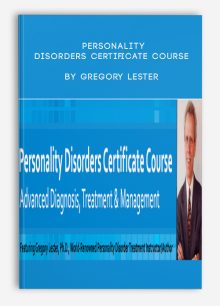

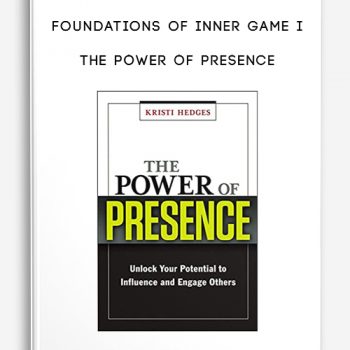




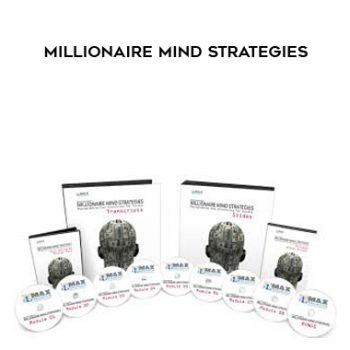

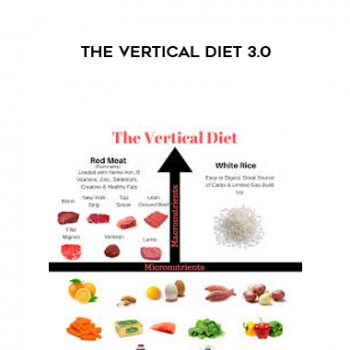
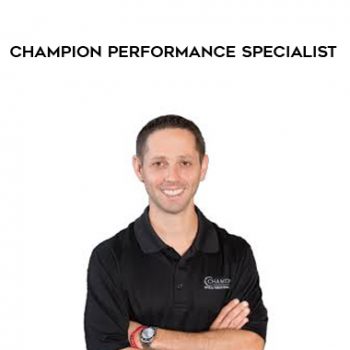
tristian –
This is Digital Download service, the course is available at Coursecui.com and Email download delivery.